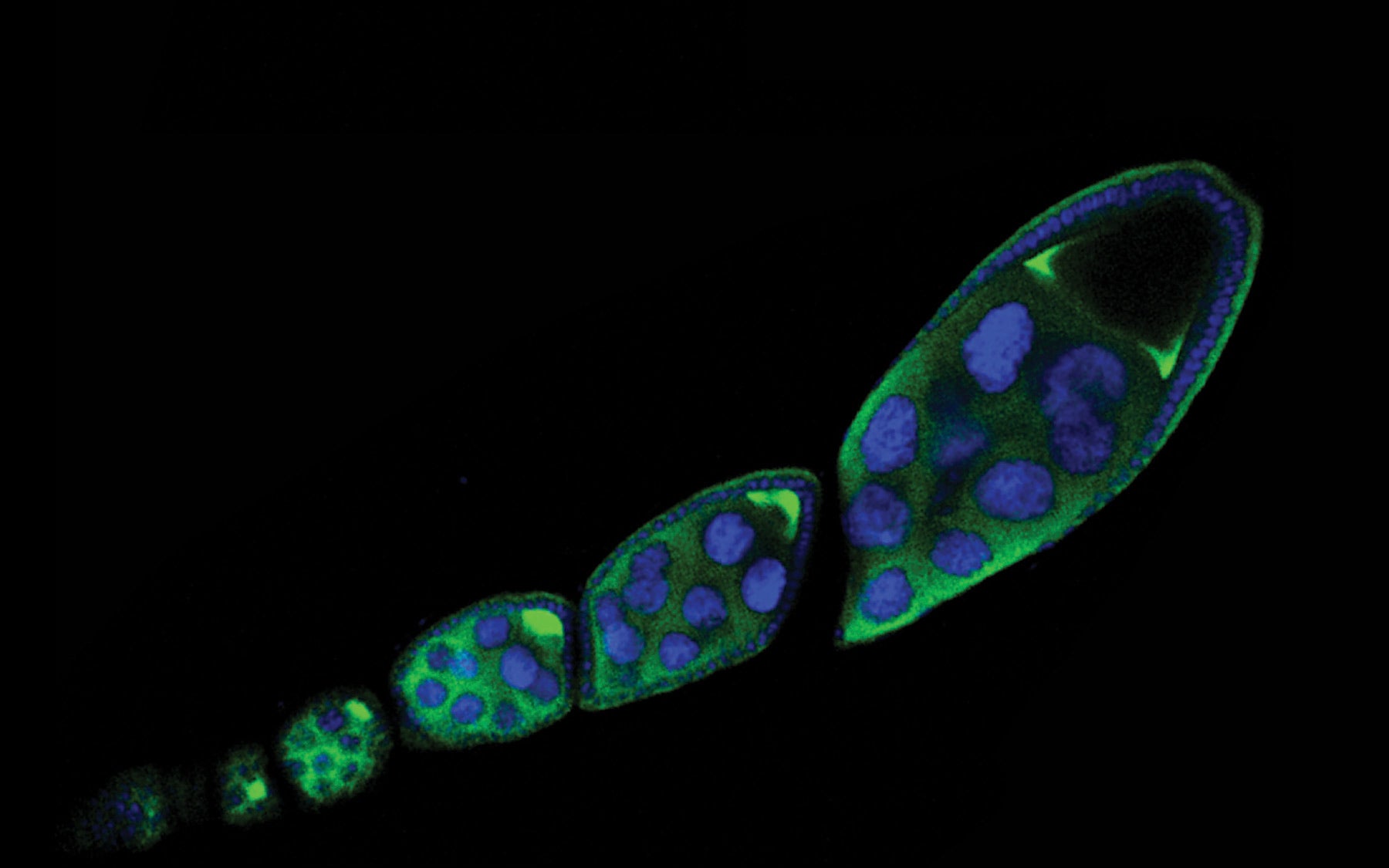Biological traits that we inherit are usually attributed either to our DNA or molecules that cling to it and modify it epigenetically. Scientists in Prof. Gregory Hannon’s lab recently found that the trait of fertility in fruit flies depends on a different factor, which can only be inherited from the mother—a class of small RNA molecules called piRNA.
Julius Brennecke and Colin Malone ran an experiment revealing that piRNAs suppress mobile bits of DNA called I-element transposons that disrupt the genome. Because male flies lack piRNAs, progeny that inherit the transposon from their father are sterile. This image by Malone shows 6 sets of developing egg chambers in which each egg is surrounded by blue-colored “nurse” cells. The bright green spots in each egg are fluorescent tags signaling the presence of I-element transposons, harbingers of sterility. This result suggests small RNAs may help transmit other important traits, in flies and perhaps other organisms.
Written by: Peter Tarr, Senior Science Writer | publicaffairs@cshl.edu | 516-367-8455
